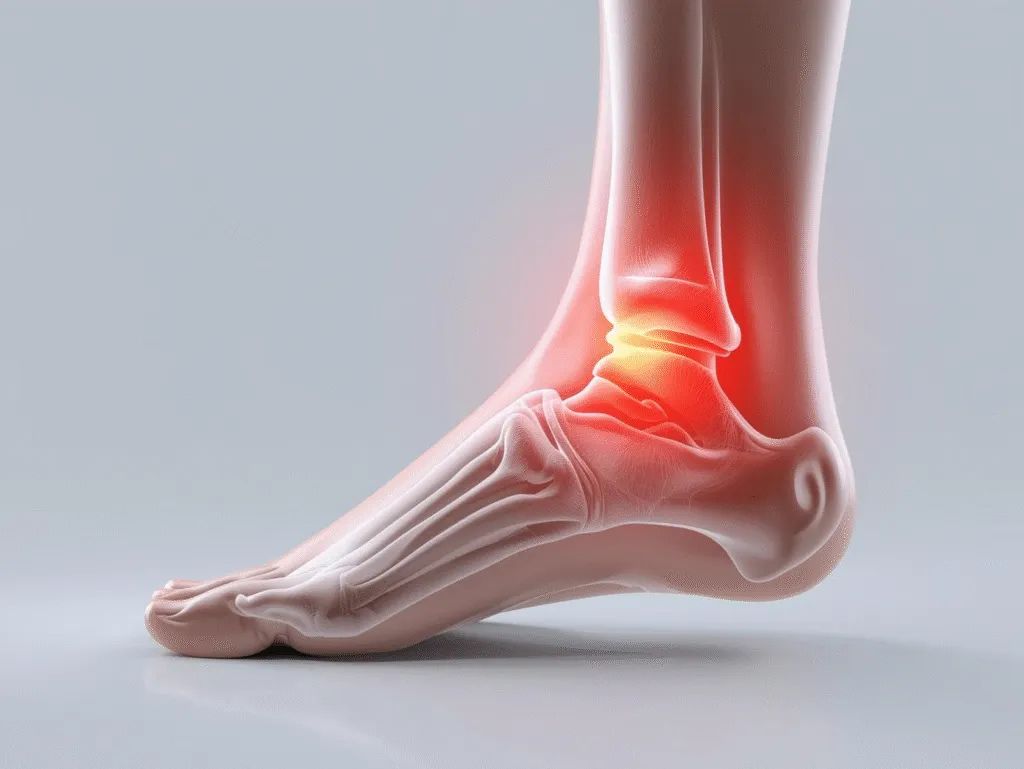Understanding Heel Pain: Proven Tips and Physiotherapy Treatments for Lasting Relief

Introduction
Heel pain is one of the most common foot problems that can affect your daily movement and comfort. Whether it’s a sharp pain when you wake up or a dull ache after a long day of walking, ignoring it can make the condition worse. The causes often range from overuse and poor footwear to inflammation of the plantar fascia.
With the right heel pain physiotherapy treatment, you can restore mobility and live pain-free. At Fitsiomax Physiotherapy & Fitness, Chennai, our expert physiotherapists use advanced diagnostic methods and personalized therapy plans to treat heel pain, plantar fasciitis, and calcaneus pain effectively. In this guide, you’ll learn the common causes of heel pain, simple exercises, physiotherapy-based treatments, and expert tips to achieve lasting relief and better foot health.
What Causes Sudden Heel Pain Without Injury?
If you experience sudden heel pain without injury, it might surprise you — but it’s more common than you think. The pain often arises from repetitive strain, tight calf muscles, or inflammation in the plantar fascia. Sometimes, even small micro-tears in the fascia can trigger sharp heel discomfort without a clear cause.
Our specialists at Fitsiomax Physiotherapy & Fitness, Chennai perform detailed gait and posture assessments to identify the underlying issue. Once the cause is found, targeted physiotherapy techniques such as stretching, soft tissue release, and strengthening exercises can relieve pain effectively.
Why Does My Heel Hurt?
Heel pain can develop for several reasons. The most common causes include:
- Plantar Fasciitis: Inflammation of the fascia that supports your foot arch.
- Achilles Tendinitis: Overuse or tight calf muscles causing pain at the back of the heel.
- Heel Spurs: Calcium deposits forming under the heel bone.
- Improper Footwear: Lack of cushioning or arch support.
At Fitsiomax, our physiotherapists identify whether the pain stems from inflammation, muscle imbalance, or joint stress, ensuring each treatment plan addresses your specific condition.
Why Does Heel Pain Get Worse When Walking?
If your heel hurts mainly while walking, it’s likely due to plantar fasciitis or overuse injuries. The heel absorbs your body’s full weight during walking, increasing stress on already inflamed tissues. You may feel stiffness in the morning that eases as you move but returns later in the day.


Wearing supportive shoes, maintaining proper posture, and following physiotherapy-guided stretching routines can significantly reduce discomfort. At Fitsiomax Chennai, we also use advanced manual therapy to correct walking patterns and improve joint alignment.
What Is Plantar Fasciitis and How Is It Treated?
Plantar fasciitis is the leading cause of heel pain. It occurs when the plantar fascia — the tissue connecting your heel bone to your toes — becomes overstretched or inflamed. Common symptoms include morning heel stiffness, sharp pain when walking, and tenderness at the heel base.
Effective treatments include:
- Ice therapy to reduce swelling
- Manual stretching to loosen the fascia
- Footwear correction for better arch support
- Shockwave or laser therapy for chronic pain
Our physiotherapists at Fitsiomax use a holistic approach that combines these treatments for faster, long-lasting results.
How to Treat Plantar Fasciitis Effectively?
The key to treating plantar fasciitis is consistency. Physiotherapy helps by targeting the exact source of pain and rebuilding foot strength. At Fitsiomax, your personalized plan may include:
- Stretching exercises for calves and arches
- Myofascial release to reduce tightness
- Taping techniques for arch stability
- Laser or ultrasound therapy for tissue healing
- Home exercise programs for ongoing care
You can also explore our Posture Correction Therapy to improve balance and prevent recurrence.
What Are the Best Treatments for Plantar Fasciitis?
The best treatment involves a mix of rest, therapy, and strengthening. At Fitsiomax, we offer customized heel pain physiotherapy treatment that includes:
- Pain management with cold or heat therapy
- Strengthening of foot and calf muscles
- Corrective footwear guidance
- Progressive loading to restore flexibility
This comprehensive approach ensures you not only recover quickly but also prevent future heel pain episodes.
Heel Pain Relief Tips
Here are expert-backed tips to manage and prevent heel pain:
- Avoid walking barefoot on hard surfaces.
- Wear supportive, cushioned shoes daily.
- Apply ice packs for 15 minutes twice a day.
- Perform gentle stretches before and after activity.
- Maintain a healthy body weight to reduce pressure on your heels.
These small adjustments, combined with professional care at Fitsiomax Physiotherapy & Fitness, Chennai, can make a big difference in long-term relief.
Heel Pain Exercises for Faster Recovery
Performing simple exercises daily can improve flexibility and strengthen your foot muscles:
- Towel Stretch: Sit and pull a towel around your toes for 20 seconds.
- Calf Raises: Lift your heels off the ground slowly to strengthen calf muscles.
- Ball Roll: Roll a tennis ball under your foot for 2 minutes to release tension.
- Wall Stretch: Stretch your calves against a wall to ease Achilles tightness.
Join our Female Fitness Studio for guided exercise programs tailored to your needs.
How Physiotherapy Helps in Plantar Fasciitis
Physiotherapy plays a key role in healing plantar fasciitis and chronic heel pain. At Fitsiomax Chennai, our experts use:
- Deep tissue therapy to release fascia tension
- Ultrasound and laser treatments to promote healing
- Strength training for long-term recovery
- Balance and gait correction to prevent future pain
Our goal is to restore natural movement, reduce inflammation, and help you walk confidently again.
Heel Pain Recovery Methods
The recovery period depends on the severity of your condition. With regular physiotherapy, most patients experience improvement within 4 to 6 weeks. Fitsiomax’s heel pain recovery plan includes personalized exercises, lifestyle modifications, and long-term preventive care.
By addressing both symptoms and root causes, we ensure sustainable pain relief and enhanced mobility.
Conclusion
Heel pain can be frustrating and limit your daily life, but with professional guidance and the right treatment plan, full recovery is possible. At Fitsiomax Physiotherapy & Fitness, Chennai, our experienced physiotherapists specialize in heel pain physiotherapy treatment designed to target plantar fasciitis, heel spurs, and chronic heel pain effectively.
Whether you need pain relief, mobility restoration, or preventive strengthening, our personalized physiotherapy programs can help.

